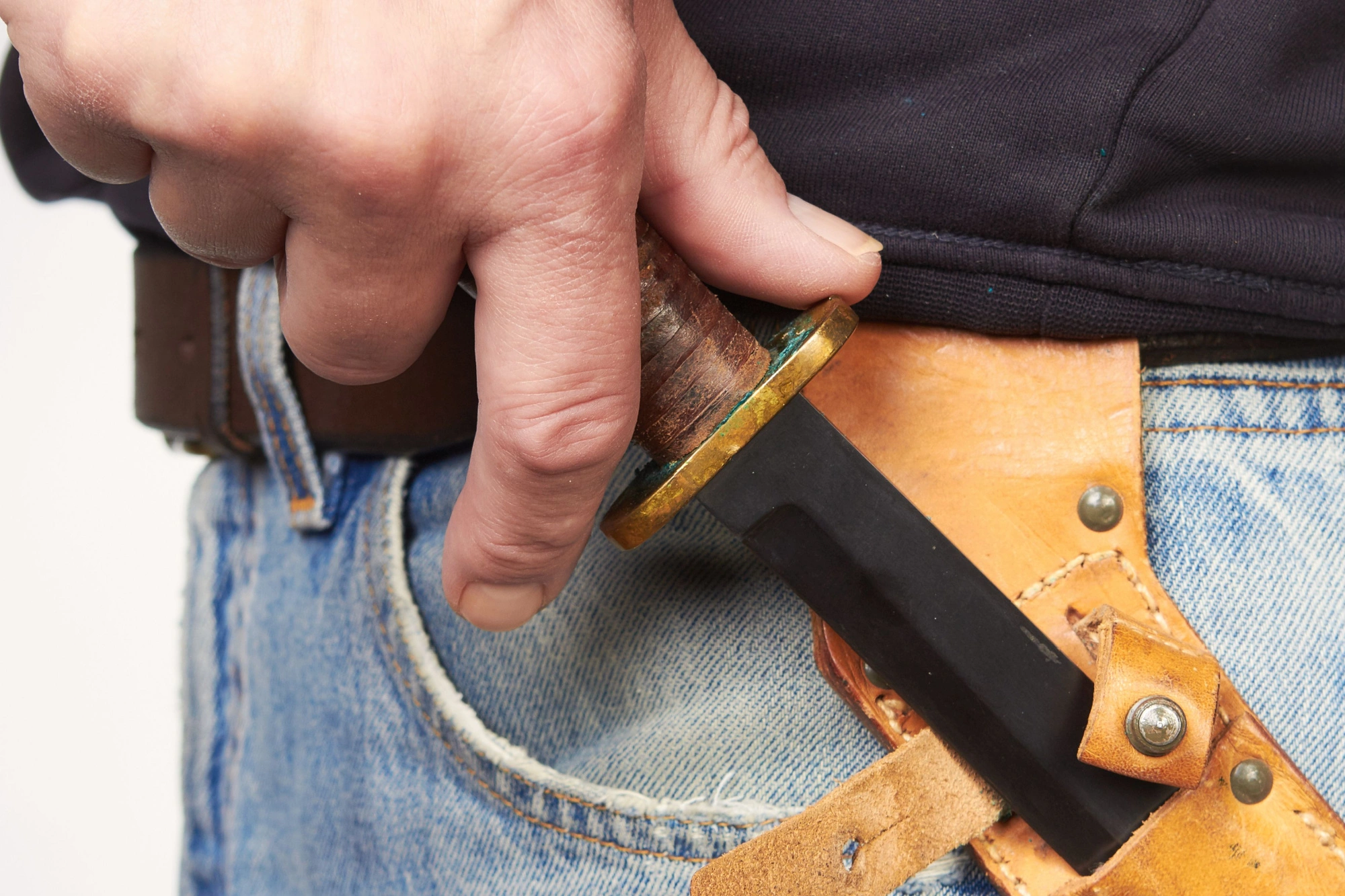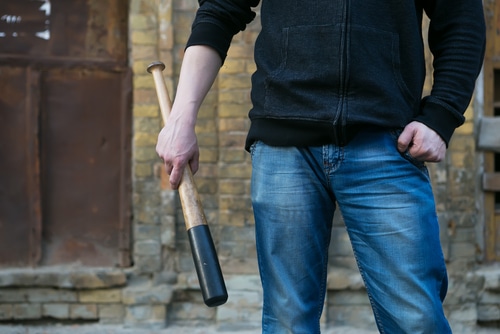Assault with a deadly weapon in Texas is one of the most serious criminal charges a person can face. Assault with a deadly weapon charges are automatically tried as second-degree felonies, and can even be upgraded to first-degree depending on the circumstances.
If you or a loved one is facing charges of assault with a deadly weapon in Texas, you need the best criminal defense attorneys Dallas/Fort Worth has to offer if you plan on keeping your freedom intact.
The aggravated assault lawyers at Sellers Law Firm can help. Led by criminal law attorney Frank Sellers, our trial attorneys prepare meticulously and argue passionately in your defense. We are not afraid to go to trial, argue your case in front of a judge and jury, and do what it takes to win.
Assault vs. aggravated assault
The difference between assault and aggravated assault in Texas, is that to be charged with aggravated assault one must intentionally, knowingly, or recklessly assault another person with an additional aggravating factor. The five most common aggravating factors in aggravated assault cases include:
- Serious bodily injury
- Recidivism
- Lack of remorse
- Age of the victim or mental health of the victim
- Use of a deadly weapon
Assault with a deadly weapon in Texas is just one form of aggravated assault. Any assault involving the use of a deadly weapon in Texas is tried as felony aggravated assault, but what exactly is a deadly weapon?
What counts as a deadly weapon in Texas?
Texas Penal Code §1.07 defines a deadly weapon as:
- A firearm or anything manifestly designed, made, or adapted for the purpose of inflicting death or serious bodily injury; or
- Anything that in the manner of its use or intended use is capable of causing death or serious bodily injury.
The language is intentionally vague, and whether or not a deadly weapon was used is often something that the jury will decide based on the facts presented by your assault defense attorneys. Texas Penal Code § 46.01, the chapter in the Texas Penal Code dedicated to weapons, does however specifically list some examples, including:
- Clubs
- Blackjacks
- Nightsticks
- Maces
- Tomahawks
- Explosive weapons
- Firearms
- Firearm silencers
- Handguns
- Location-restricted knives
- Knives
- Knuckles
- Machine guns
- Short-barrel firearms
- Hoax bombs
- Chemical dispensing devices
- Zip guns
- Tire deflation devices
As you can see, you can intend to use just about anything as a deadly weapon, so it will depend heavily on your intentions and your attorney’s ability to present facts to the jury.
What is the penalty for assault with a deadly weapon in Texas?
Avoiding a conviction for assault with a deadly weapon is essential if you want to avoid severe penalties. Aggravated assault with a deadly weapon in Texas sentences are long, and the penalty breakdown is as follows.
| Charge | Fine | Prison time |
| Second-degree felony | Up to $10,000 | 2 – 20 years |
| First-degree felony | Up to $10,000 | Up to 99 years |
Assault with a deadly weapon charges are tried as first-degree felonies when:
- The victim is a family member, household member, or dating partner.
- The crime is committed in retaliation against a public servant, a known witness, an informant, or person who reported the occurrence of a crime.
- Serious bodily injury occurs during the discharging of a firearm from a motor vehicle, in the direction of an occupied habitation, building, or vehicle.
Otherwise, it is likely that assault with a deadly weapon charges will be tried as second-degree felonies, and your attorneys will be your last line of defense against a maximum of 20 years in prison.
Can assault charges be dropped in Texas?
If you want to get your charges for aggravated assault with a deadly weapon in Texas dismissed or dropped, you’ll need an aggressive and dedicated attorney who can advocate for you, showing the court that you were put in the situation by factors that you were not under your control.
One of the major defenses to charges for aggravated assault is self-defense. The self-defense laws in Texas apply in homicide and assault cases in which a person commits the action in response to violence or threats of violence. Even if the Texas self-defense laws apply, you will still need a good lawyer to prove that you had a belief in necessary force and used a reasonable amount of force in defending yourself.
Can you get probation on aggravated assault with a deadly weapon in Texas? If you are found guilty you will not be eligible for probation, which means it is essential that you are not found guilty in the first place. And to that, you’ll need the right attorney in your corner.
Call the lawyers for assault with a deadly weapon in Texas at Sellers Law Firm
If you or a loved one is facing charges of assault with a deadly weapon in Texas, you need to contact an experienced and aggressive Fort Worth assault attorney before it is too late. The prosecution is building its case against you right now, and every minute that goes by is another minute during which your attorney could be strengthening your defense.
Whether you need a lawyer for criminally negligent homicide or a Fort Worth murder lawyer, the criminal trial attorneys at Sellers Law Firm are here to ensure that your rights are respected and your freedoms are protected.
Call Sellers Law Firm today at (817) 928-4222 or contact us online today for a free consultation.
More Helpful Articles by Sellers Law Firm
- The Different Types of Murder Charges in Texas
- The Difference Between Murder Vs. Manslaughter in Texas
- What is the Penalty for Violating the False Claims Act?
- How Long Do Sex Offenders Have to Register in Texas?
- What is the Penalty for Carrying Weed Across State Lines?





